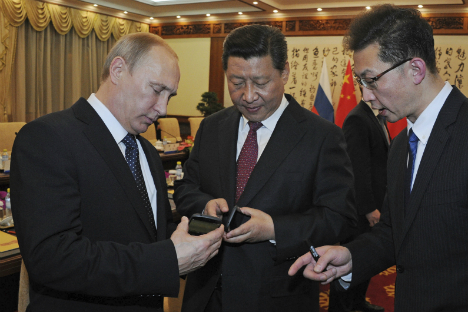Why Russian IT companies are moving to Asia

A growing number of Russian-origin information technology (IT) companies are moving part of, or all their operations to East Asia. There seem to be a variety of reasons for this trend.
Hardware producers choose Asia to cut expenses on logistics and product development. The creators of the CreoPop 3D-pen made 14 prototypes before launching production. In Singapore, it took one month to make a prototype, compared to two months in Russia.
Internet-based consumer startups are eyeing the Asia-Pacific’s growing middle class. Software business-to-business companies are also moving to Asia and specifically to Singapore. Ruvento BaseRide is selling its cloud solutions for public transport and commercial logistics to companies based in Singapore.
And some of the IT companies or startups are shifting to Asia to work from a more comfortable climate. The founders of Promokodex.ru have been working from Thailand, Cambodia, Singapore, Vietnam and Malaysia.
Successful Russian IT companies in Asia
Despite the fact that the Asian market is highly competitive, some Russian companies managed to make a mark in the continent.
i-Free
The company started operations in China in 2007 as a developer of Java-based games. Its main product now is mobile games both for iOS and Android. There are now more than 100 games in their portfolio, which helped iFree to become the Best content provider for China Mobile in 2012 and the strategic partner of China Telecom.
Companies like Huawei, ZTE and Lenovo are preinstalling iFree games on phones sold on the local market. IFree has an office in India as well, and is working with Japan, South Korea, Thailand and Malaysia via partners.
InfoWatch
The company provides solution to protect corporate data and information and has operations in India, Malaysia and Indonesia. In India, InfoWatch is focused on finance, IT and transport companies, and provides companies with white label solutions. In Indonesia, it is a cyber-security consultant for the government.
ABBYY
The company entered the Asia market around 15 years ago and has offices in Japan and Taiwan. ABBYY products (Fine Reader) are sold together with major scanner producers like Samsung and LG. The company also takes part in major projects. For example, it scans the documents for nuclear stations in China and takes part in the national census in Sri Lanka.
In March 2014, the ABBYY Language Services launched a free cloud service for translators, which is used worldwide with more that 6,000 freelance translators from Asian countries.
Kaspersky Lab
Kaspersky Lab is an international software security group operating in almost 200 countries. It entered Asia back in 2003 opening offices in Japan and China. In April 2015, it moved its Asian headquarters to Singapore, where it plans to intensify its cooperation on cyber-security with the Interpol office.
Parallels
This Russia-born IT company earns a small percentage of its revenue in the Russian market, while Asia accounts for 25 percent (U.S. account for 40 percent and Europe – 30 percent). Parallels provides software for running a Windows operating system on Apple devices. The company has a presence in Singapore, Australia, Japan, Indonesia and China. In terms of volume, China is their second-largest market after the U.S. In China, Parallels Desktop for Mac is the only solution sold via official Apple stores.
Based on the RusBase report.
All rights reserved by Rossiyskaya Gazeta.
Subscribe
to our newsletter!
Get the week's best stories straight to your inbox

